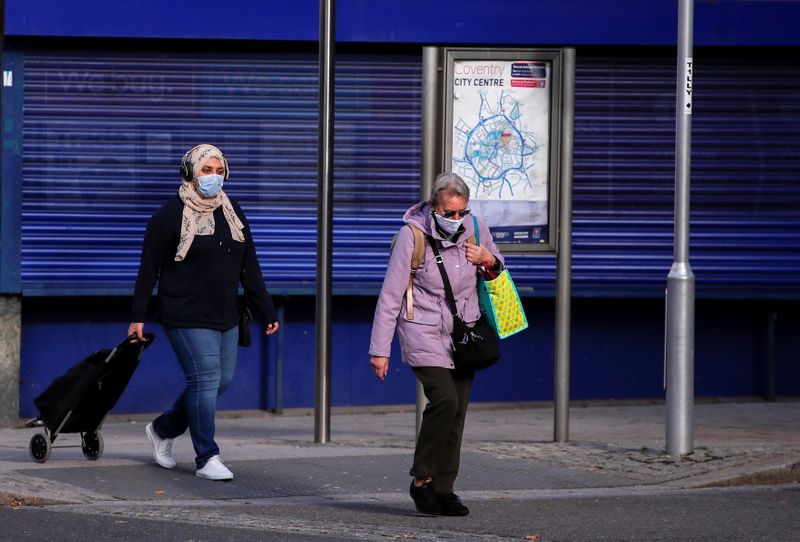This post was originally published on this site
https://i-invdn-com.akamaized.net/trkd-images/LYNXMPEG9P0QB_L.jpg
MILAN (Reuters) – European leaders warned of difficult months ahead as the resurgent COVID-19 pandemic forced authorities to impose new restrictions to try to curb the spread of the disease.
Word that a vaccine being developed by the University of Oxford and AstraZeneca (NYSE:AZN) Plc produced immune responses in both elderly and young people offered some positive news.
However, British Health Secretary Matt Hancock cautioned that the vaccine would not be widely available until next year and said “we’re not there yet”.
Elsewhere the picture was unrelentingly grim as a string of countries reported record increases, led by France, which posted more than 50,000 daily cases for the first time on Sunday, while the continent passed the threshold of 250,000 deaths.
Governments have been desperate to avoid the lockdowns which curbed the disease at the start of the year at the cost of shutting down their entire economies. But the steady rise in new cases has forced them to ratchet up controls steadily.
“We are facing very, very difficult months ahead,” German Chancellor Angela Merkel told a meeting of leaders from her Christian Democrat party, according to daily Bild.
Although Germany has fared relatively well compared to other countries in Europe, it too has seen a sharp rise in cases and the closely watched Ifo business climate index fell on Monday, reflecting the worries over the virus.
The gloom around the resurgent virus weighed on financial markets, where oil prices dropped on concerns of another slide in demand and stock markets also fell.
In Spain, which has had more than 1 million cases of the disease, Prime Minister Pedro Sanchez warned the country was facing an “extreme” situation as he announced a new state of emergency on Sunday, imposing local nighttime curfews and banning travel between regions in some cases.
Italy, the country worst hit in the early stages of the crisis in March, also imposed new curbs, ordering restaurants and bars to close from 6 p.m. and shutting down cinemas, and gyms and imposing local curfews in several regions.
Street clashes with small groups of protestors over the weekend and angry criticism from restaurant owners and business groups about the impact of the measures underlined the increasingly tense climate facing Prime Minister Giuseppe Conte.

